Sawasdee Pi Mai … or Happy New Year!
If you are in Bangkok in mid-April or thinking of a good time to visit — consider joining the country’s Songkran Festival! Also known as the ‘water festival’, this is a festive period. Families get together, locals visit temples laden with offerings and receive blessings, and you can cool off in a local water fight!
Songkran is celebrated annually from 13-15 April, although festivities can typically last up to a week. Songkran is a Sanskrit word meaning ‘astrological passage’ and it signifies the passage of Pisces and the coming of Aries. The first day of Songkran is called Rod Nam Dum Hua, when Pisces is almost out of the night sky. On this day, younger family members pour fragrant water over their elders’ palms and ask for blessings. The second day, when Pisces has left and Aries is yet to appear, is considered a family day. Families rise together and offer alms to the monks. Many then go to their local temple and pour fragrant water over a Buddha image, as a sign of respect, washing away the old and ushering in a new, clean start. Folks consider their deeds and think of the merit-making. Many locals go to their local temple on this day – or some visit up to 9 temples to accumulate merit.
The final day is the arrival of Aries and marks the beginning of the new year. Friends and families pour water on each other to symbolize a cleansing and a fresh start. Many set up buckets of water outside their houses and douse neighbors and passersby’s in the spirit of community and fun.
Songkran has a festive and wet side! Traditionally, family, friends and neighbors poured small cups of water on each other. As the festival evolved the cups became buckets and hoses and water guns. Groups of friends gather on busy streets to have water fights — and cool off! Tourists join in the fray, flocking the street parties. Depending on your point of view, it can be fantastic time or general mayhem.
Songkran 2017: Good to Know
Where are the street parties?
This year the street water party will be restricted to Khao San Road and Silom Road. Khao San Road is a short tuk-tuk or taxi drive away. You can reach Silom Road by taking the MRT (or underground railway) from Hualumphong Station, a ten-minute walk from Shanghai Mansion.
What are good temples to visit?
If you wish to participate in rituals including pouring water over the Buddha, there are numerous temples in Sanam Luang, or Grand Palace Area. Take a riverboat to Tha Tien Station, and you can visit Wat Phra Kaew (Temple of the Emerald Buddha) or Wat Po (Temple of the Reclining Buddha).
Are shops and businesses closed?
Most businesses and small shops close during this period. However, major shopping malls, public transportation and major restaurants are open. Markets and street foods in Chinatown are open.